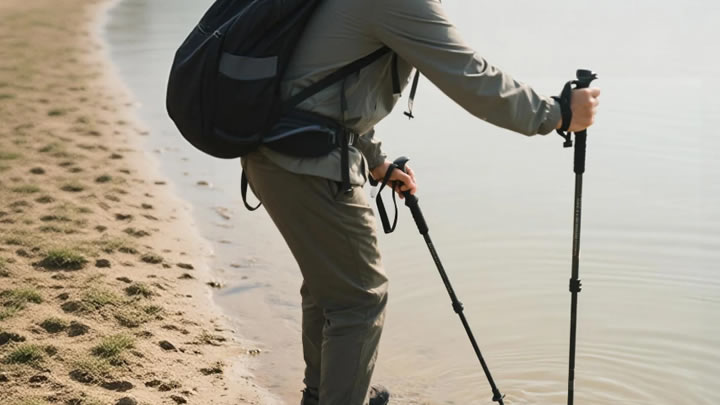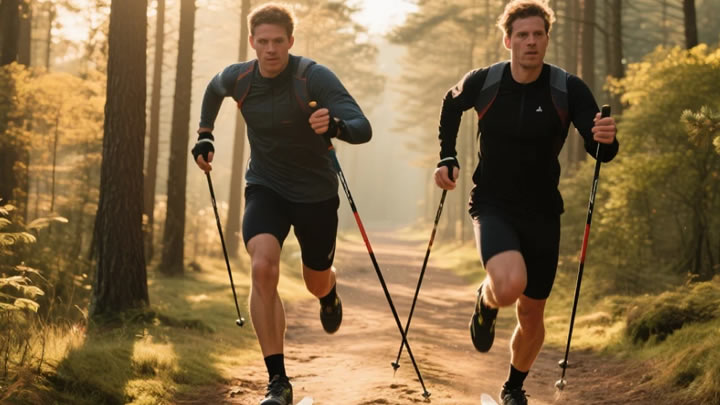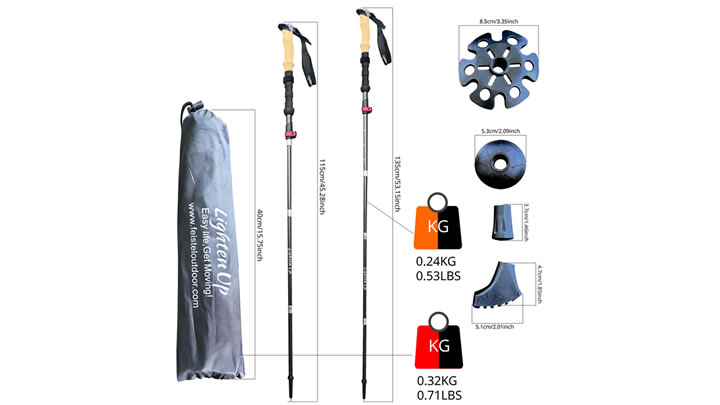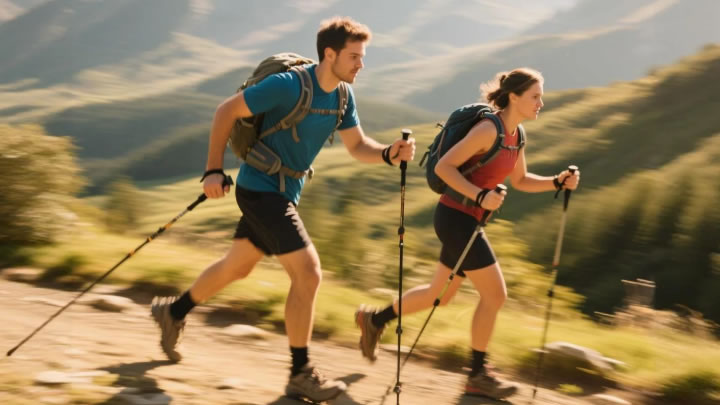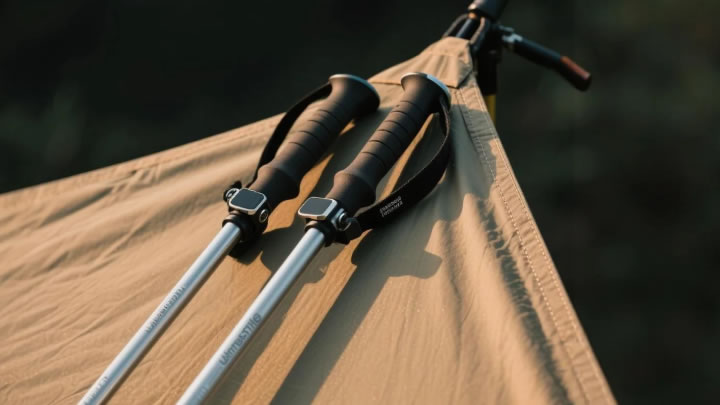Zero-waste hiking: Lightweight reusable essentials
In recent years, the popularity of hiking has soared as more people seek to connect with nature and enjoy outdoor adventures. However, with this increase in activity comes a growing concern for the environmental impact of our hikes. Disposable plastics, single - use items, and excess waste are marring our beautiful trails and natural landscapes. This is where zero - waste hiking comes in, a practice that not only helps preserve our environment but also enriches the hiking experience.
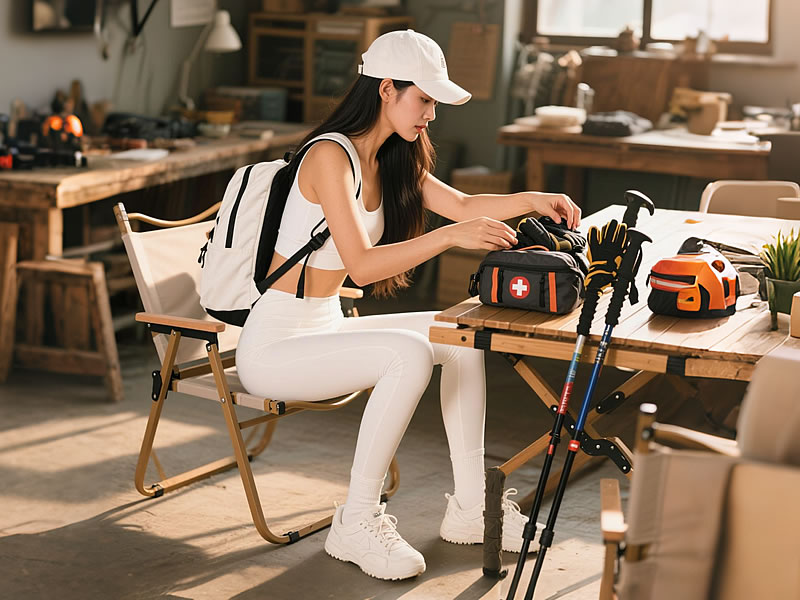
The Concept of Zero - waste Hiking
Zero - waste hiking is not about achieving a literal state of producing no waste at all. Instead, it is a commitment to minimizing waste generation during your hike by making conscious choices. It involves reducing, reusing, and recycling as much as possible, and when necessary, properly disposing of any waste that cannot be avoided. The goal is to leave the trail and surrounding areas in the same, if not better, condition than when you arrived.
Lightweight Reusable Essentials for Zero - waste Hiking
1. Water Containers
One of the most crucial items for any hike is water. Instead of relying on disposable plastic water bottles, invest in a high - quality reusable water bottle. Stainless - steel bottles are an excellent choice as they are durable, lightweight (especially when compared to some glass options), and do not leach harmful chemicals into your water. Brands like Hydro Flask and Klean Kanteen offer a variety of sizes and styles to suit different hiking needs. If you prefer a more flexible option, collapsible silicone water bottles are also available. They can be folded up when empty, taking up minimal space in your pack.
For longer hikes or in areas where water sources are available, a portable water filter is a must - have. Sawyer Mini Water Filters, for example, are extremely lightweight and can effectively remove bacteria, protozoa, and microplastics from natural water sources. This means you can refill your reusable water bottle from streams, lakes, or other water bodies along the trail, reducing the need to carry large amounts of pre - bottled water.
2. Food Storage and Preparation
When it comes to food, avoid single - use plastic packaging. Opt for reusable containers such as stainless - steel or BPA - free plastic lunch boxes. You can also use reusable silicone bags to store snacks like nuts, dried fruits, and trail mix. These bags are not only durable but also easy to clean.
For those who enjoy a hot meal on the trail, consider using a lightweight titanium cookware set. Titanium is incredibly strong yet lightweight, making it ideal for hiking. Instead of using disposable fuel canisters, look into stoves that can use natural fuels like twigs or alcohol. There are also lightweight, reusable coffee filters if you like to have a cup of coffee on your hike, eliminating the need for paper filters.
3. Personal Hygiene Products
Bringing eco - friendly toiletries is another important aspect of zero - waste hiking. Biodegradable toothpaste tablets are a great alternative to traditional toothpaste in plastic tubes. You can use a reusable toothbrush, and there are even bamboo - handled toothbrushes available for a more sustainable option. For body cleaning, choose bar soaps instead of liquid soaps in plastic bottles. Wrap the soap in a reusable cloth bag to keep it dry and prevent it from getting lost in your pack.
For menstrual hygiene, menstrual cups are a highly sustainable option for women. They are reusable, can be worn for several hours, and significantly reduce the amount of waste generated compared to disposable pads or tampons.
4. Other Reusable Items
A reusable shopping bag or two can be extremely useful on a hike. You can use them to carry any items you pick up along the trail, whether it's trash you find or items you collect for identification purposes (as long as it's legal and sustainable to do so). A foldable microfiber towel is also a great addition. It can be used for drying off after crossing a stream, as a seat cover, or even as a makeshift bandage in an emergency.
Solar chargers are becoming increasingly popular among hikers. They allow you to charge your electronic devices, such as your phone (which can be used for navigation, taking photos, or emergency communication) without relying on traditional electricity sources. This reduces the need for disposable batteries and the associated waste.
The Benefits of Zero - waste Hiking
Beyond the obvious environmental benefits of reducing waste and protecting our natural habitats, zero - waste hiking also has personal advantages. By using lightweight, reusable essentials, you can often reduce the overall weight of your pack. This makes your hike more comfortable and less strenuous, allowing you to enjoy the experience more fully.
Moreover, zero - waste hiking encourages mindfulness. It makes you more aware of your consumption habits and the impact of your choices. As you become more accustomed to using reusable items and minimizing waste, these habits are likely to carry over into your daily life, leading to a more sustainable lifestyle overall.
In conclusion, zero - waste hiking with lightweight, reusable essentials is a practical and rewarding way to enjoy the outdoors while minimizing your environmental footprint. By making a few simple changes and investing in the right gear, you can contribute to the preservation of our beautiful trails and natural areas for future generations of hikers to enjoy. So, the next time you plan a hike, take a step towards zero - waste and make your adventure even more meaningful.

